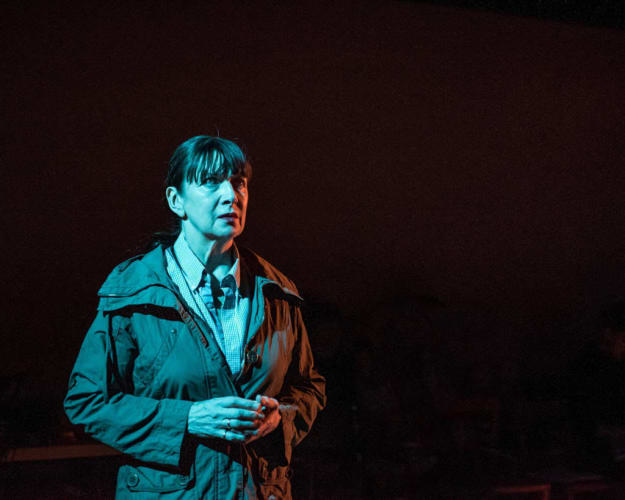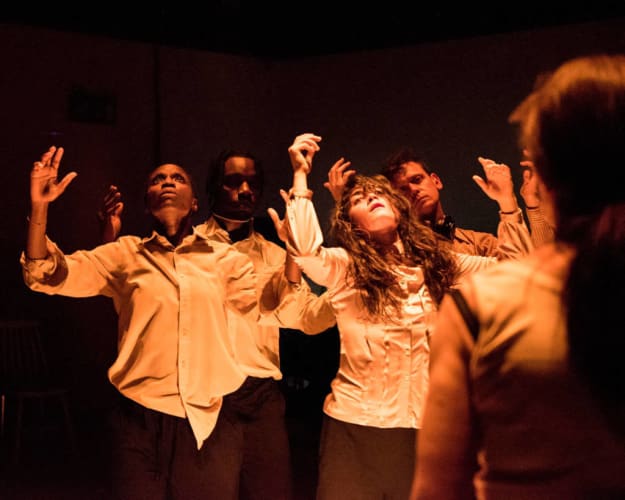When a playwright makes the following statement in his introductory notes, audience members know that there are for an impenetrable evening.
“I don’t want to talk about the themes or content or any meaning in Nuclear War here. I believe that interpretation to everybody else”.
To be more precise, on this occasion the impenetrability only lasts a little under 45 minutes.
This is hardly the first occasion on which Simon Stephens, who has become an increasingly modish cult figure with a fanatical following, has created a theatrical piece that might be expected to speak more to the subconscious than the part of the brain that seeks order and meaning.
However, even in that context, his latest work, which is directed by choreographer Imogen Knight, is unusual.
More often than not in semi-darkness, five actors are surrounded by audience members on a motley assortment of low budget, uncomfortable chairs.
To the extent that there is a central character, it is the woman played by Maureen Beattie, sometimes speaking via recorded voice-overs and on other occasions directly. She is mourning the loss of a loved man on the seventh anniversary of his death.
It is safe to say that she is unhappy and struggles to express her emotions, while still feeling the loss as something distinct, painful and recent.
Around her, the other four actors mumble, sing, move fluidly and dance to an eerie backing track composed by Elizabeth Bergholz, Andrew Sheridan occasionally taking on the guise of the departed young man, while his colleagues join him to form a well-drilled ensemble.
During the brief running time, the short text allows meditations on love and loss in the context of the underground, the home and elsewhere seemingly without reaching any firm conclusions.
It is likely but not entirely certain that the Nuclear War of the title is symbolic rather than real, possibly representing the devastation that death can bring to those deeply devoted to the departed.
Otherwise, as the playwright has suggested, most viewers will allow the experience to flow over them, one hopes leaving behind fond memories of attractive images or thought-provoking moments.


